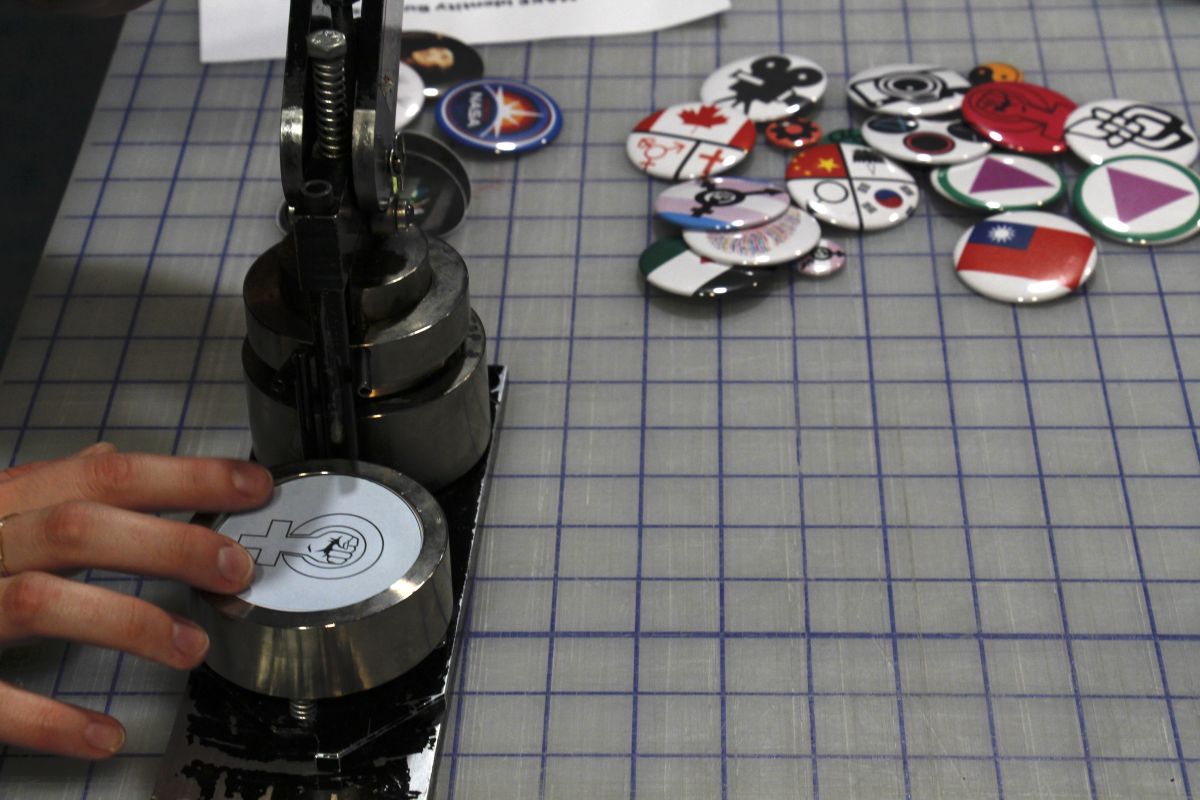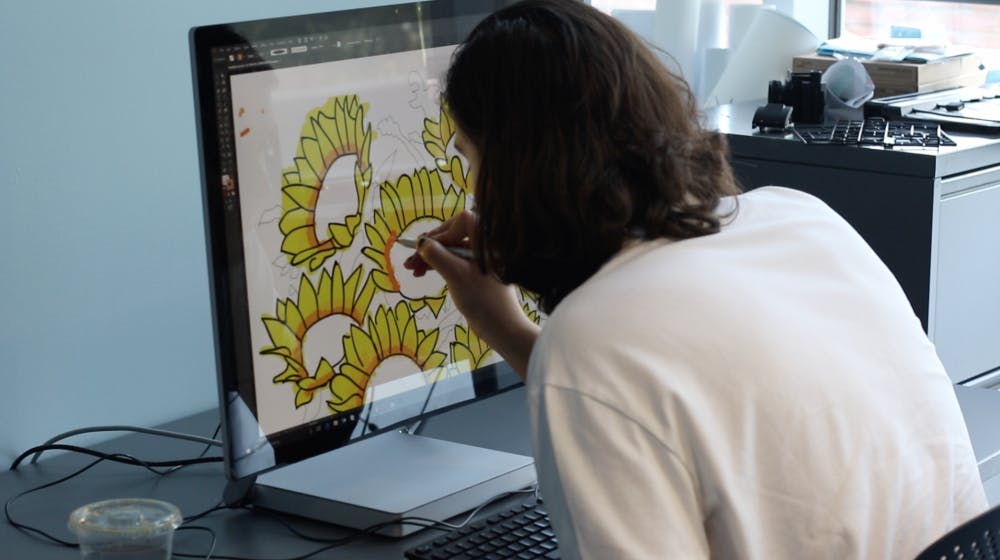Over Halloween weekend, students gathered in the Mattin courtyard to drop pumpkins off the second floor balcony, make their own masks and engage in some intense gaming competitions. The annual game night was hosted by the Digital Media Center (DMC), a multimedia lab space that serves as an equipment, printing, software and knowledge resource for students on campus.
Located in Suite 226 of the Mattin Center, the center offers a variety of spaces with commercial and professional-grade software. At the center of the DMC is a computer lab with 17 work stations, complete with Adobe Creative Cloud. Students can also sign up to use the DMC’s audio studio, which is equipped with a synthesizer, drum kit, mixing station and a full suite of production software.
According to Founding Director Joan Freedman, the DMC opened in 2001 and was originally a film center. The DMC began as a two-room setup with an audio studio and a video editing suite.
“Our mission has pretty much been the same from the start: to empower students to use technology to communicate and to have the skills themselves to do it rather than to turn to or ask others,” Freedman said. “It’s really important to us that everyone has access to all the equipment we have, regardless of major or class.”
However, the DMC has evolved over the years. According to Freedman, the lab has now expanded to now offer various equipment in the following categories: photography; video; 2-D graphics; 3-D printing and modeling; and audio and gaming.
Freedman said that besides just being a technology center, the DMC strives to encourage students to also participate in the arts on campus, as it is housed in the Mattin Center — the home for the arts. She said that another goal of the DMC is to encourage students to pursue different media projects.
Freedman’s personal mission is to collaborate with anyone she can. Both Freedman and DMC Program Manager Deborah Buffalin have reached out to faculty, heads of departments, deans and provosts to see how they can work together.
For example, many years ago, the DMC collaborated with mechanical engineering professor, Allison Okamura, for a sensor actuators class. Freedman, Buffalin and Okamura assigned a project for students to create a robot that could make art.
“The day that they unveiled their projects was so much fun. It was like being in a science fair for college kids who were just allowed to go crazy,” Buffalin said. “There were robots that could grab a brush, crawl to the middle of a page and paint. There were robots that could bounce up and down to create images and robots that punched paper.”

Buffalin said the class quickly became very popular.
“The DMC is happy to collaborate with faculty to help them design academic experiences that can be part of the class and that can be really positive learning experiences,” Buffalin said.
In addition, every year the DMC gives out a grant recently reidentified as the Digital Da Vinci Award for students’ creative use of technology. This year the total amount of grant money is $6,000. Past projects include a multimedia dance composition for a Temps d’Afrique dance showcase and an entry for the Baltimore Kinetic Sculpture race, Twitter Jay.
Many students also use the DMC to record and edit audio and to borrow hardware, software and equipment such as digital cameras free of charge. Student staffer Nicole Cheng said that the DMC is important because it provides students with a condensed platform of all things technology related.
“We keep relatively up to date with tech trends,” Cheng said. “We recently got the HTC Vive, which is a virtual reality console, the Nintendo Switch and two 3-D printers.”
Cheng said that the DMC has both student and professional staff and is open during the best time for students: Sunday to Thursday from noon to midnight and Friday and Saturday from noon to 10 p.m.
“People are more comfortable asking questions and getting help since the DMC is mostly staffed by students,” Cheng said. “It’s a really friendly environment where undergraduates can ask for help. At the same time, if you are looking for something more professional, there are pro-staffers who specialize in specific forms of digital media.”
The pro-staffers hold workshops every week to help students learn to use the technology available at the DMC.
“We’re here to make sure that students have the media communications skills for every aspect of their entrepreneurial, personal, artistic and creative expression,” Freedman said.
Correction: The article originally stated that the DMC oversaw the MakerSpace located in the Wyman Park Building which is incorrect.
The DMC was actually founded in 2001, not 2011. Additionally, the project with professor Okamura that was described took place around 10 years ago.
The News-Letter regrets these errors.





